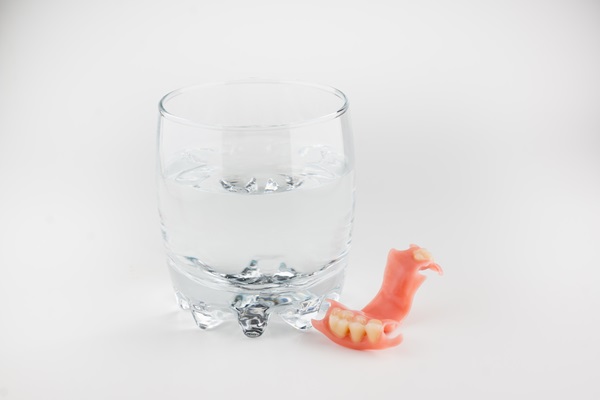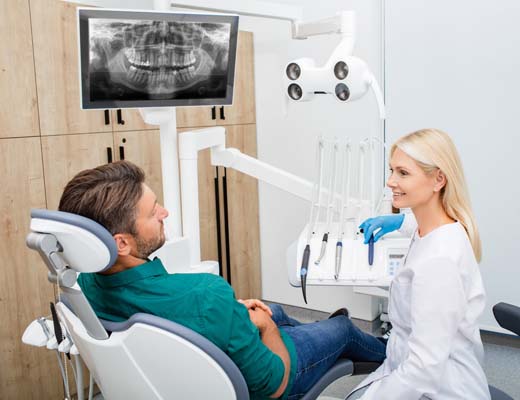Can a Dentist in Delaware Prescribe Medication if Needed?

Because the treatment of dental problems sometimes requires medication, a dentist in Delaware has some ability to write prescriptions for patients. However, a dentist's authority to write prescriptions is strictly limited to pharmaceutical products directly related to dentistry. In other words, a dentist who prescribes medication for a patient should always be prepared to explain why it is necessary to a patient's dental care in case the prescription is questioned or challenged.
Types of medications a dentist in Delaware may prescribe
Many of the medications used in dental care are available to the patient over the counter. In cases such as these, the dentist will typically just recommend the pharmaceutical to the patient since a prescription is not necessary. There are other types of medications used exclusively in the dentist's office, so a prescription is not necessary; fluoride and anesthetics are good examples. When a drug is not available over the counter, but the patient has to obtain it from a pharmacist, the dentist will write a prescription.
Antibiotics
Antibiotics are used to treat bacterial infections in the mouth, such as periodontal disease. Antibiotics used in dentistry include tetracycline and doxycycline. They are sometimes administered by alternative routes, such as microspheres, mouth rinses or gels, to deliver the medicine directly where it is needed.
Topical analgesics
Canker sores, braces, dentures and toothaches can all cause oral pain and irritation. A topical analgesic is a pain reliever that is applied directly to the symptomatic area. Many are available over the counter, but the more powerful analgesics require a prescription.
Anti-inflammatories
Anti-inflammatories include steroid medications and nonsteroidal anti-inflammatories, e.g., ibuprofen, aspirin, naproxen. The latter typically do not require a prescription, but the former almost always do.
Pain relief
Whenever possible, a dentist in Delaware will recommend over-the-counter pain relievers, such as acetaminophen, for dental pain. However, after an extensive procedure, it may be necessary to prescribe opioid painkillers. If taken too long, opioids can become addictive. Therefore, the American Dental Association recently put a new policy into effect to help combat opioid abuse. It supports opioid prescription for a duration of no more than one week to combat short-term dental pain and mandatory continuing education on prescribing controlled substances such as opioids.
Restrictions on dentists prescribing medications
It must be possible to hold dentists accountable for any medications they prescribe. Therefore, a dentist's office must keep complete and copious records on any prescriptions it issues for controlled substances. This means not only including the records in the patient's file but also keeping a separate record of all the prescriptions written.
A dentist cannot prescribe medications for any reason outside of the practice of dentistry. In other words, there are many types of medications that a dentist has the authority to prescribe, but it must be related to the patient's course of dental treatment. For example, if it were necessary to treat a patient's sinus condition before maxillofacial surgery could take place, a dentist could prescribe sinus medication in that specific circumstance.
Even if there is a legitimate dental reason, self-prescribing by dentists is not allowed. When deemed necessary, a dentist must receive a prescription from a colleague or other health care provider.
Conclusion
A dentist's ability to prescribe medication is limited to the scope of the dental practice. These limitations are in place for everyone's safety.
Request an appointment here: https://sexton-dental.com or call Sexton Dental at (740) 363-2080 for an appointment in our Delaware office.
Check out what others are saying about our services on Yelp: Read our Yelp reviews.
Recent Posts
Partial dentures are a great tooth replacement option for missing teeth. They are easier on the mouth than full dentures but not as costly as dental implants. Those that wear partial dentures can expect an easier eating experience, better speaking and an aesthetically pleasing smile. However, with partial dentures comes discipline, meaning the wearer must…
Many patients are nervous before a dental bonding procedure, although the procedure itself is non-invasive, only takes one dental visit and does not require any anesthesia. You can prepare yourself mentally and physically for the procedure, however, by knowing what to expect, how to prepare and what to plan for after the procedure. The following details…
In general dentistry, dental fillings are one of the most common restorative procedures performed. They are used to address the damage done to teeth, most often as a result of cavities. Continue reading to find out more!Below is a quick overview of dental fillings in general dentistry, including how they are placed and when they…
Thinking about getting dental sealant treatment? Dental sealants are a vital tool for preventing cavities or tooth decay. Tooth decay is a prevalent condition among children and teenagers, and when unchecked, it can lead to other serious oral issues such as premature tooth loss and gum disease. In combination with other preventive care measures such…


